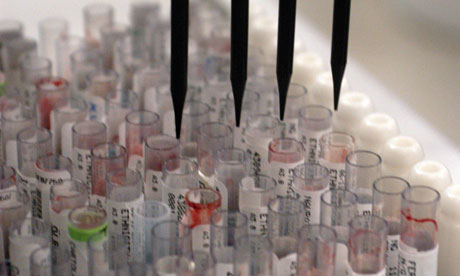
Researchers have found "the strongest evidence so far" that genetic factors can increase the risk of a person developing meningitis. The discovery that gene mutations can determine whether a person develops the disease could help in the search for a vaccine for certain strains.
The findings were made after researchers studied the DNA of 1,500 people with the disease, and 5,000 without, to find anomalies between different groups.
Researchers looked at half a million common genetic variants scattered across each person's genome – which holds information on inheritable traits – and found that some people have differences in their natural defences that make them more vulnerable to contracting the disease.
The results of the study are published in the journal Nature Genetics.
They reveal that those who had developed meningococcal meningitis, a bacterial form of meningitis that affects the brain membrane and can cause death within hours, had markers on a number of genes that were involved in attacking and killing invasive bacteria.
Paediatrician Professor Michael Levin, of Imperial College London, said: "Although most of us have carried the meningitis bacteria at some point, only around one in 40,000 people develop it. Our study set out to understand what causes this small group of people to become very ill while others remain immune. Our findings provide the strongest evidence so far that there are genetic factors that lead to people developing meningitis."
While most people are exposed to the bacteria that causes meningitis at some point in their lives, the vast majority do not develop the disease, and the new research further suggests that a person's genetic makeup can determine whether or not they develop it.
It may also go some way to explaining why some people's immune systems are able to keep the bacteria in check while others contract the disease and deteriorate rapidly.
While antibiotics can treat some strains of meningococcal bacteria, the disease can become critical within hours.
Dr Victoria Wright, one of the study's co-researchers, said: "Improving our understanding of why some people get the disease and not others will help to identify those at risk and develop better vaccines." Researchers hope that their findings will help in developing effective vaccines to combat the group B strain of the virus which has so far proved elusive to treatment

